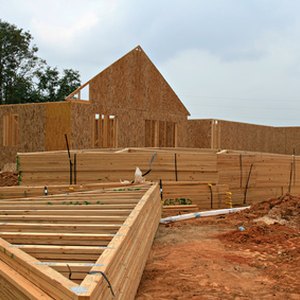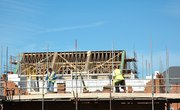
Building a house on vacant land can allow you to create a home that meets your specific needs and may cost less than it would to buy a finished home. New home construction is often secured with a mortgage just like the purchase of an existing home; you should consider several tax implications before deciding to build a new home.
Real Estate Taxes
Owners must pay real estate taxes on land and structures built on the land. Owners of vacant land owe real estate taxes, but building a structure like a home will greatly increase the value of the property. State and local governments tax real estate based on an assessed value. Tax assessors will estimate the value of the new home and factor it into your real estate taxes. The larger and more valuable the new home is, the higher the assessed value and your real estate taxes will be. Even if you get a great deal on the cost of construction or build the home yourself, the tax increase can be costly. Consider the increase in your real estate taxes before building a home; scaling back its size can reduce your tax burden.
Improvements
If you decide to make improvements after constructing a home, the additions will be assessed and factored into your real estate taxes. If you cannot afford the taxes on the home you initially planned, you could build a smaller home with the goal of expanding in the future. This would allow you to pay less in real estate taxes until you make the improvements.
Challenging Assessments
You might be able to challenge the assessed value of a home to reduce the real estate taxes, according to the Domania website. If homes of comparable size and value sold recently in your area for considerably less than the assessed value of your home, the assessor might have overvalued it. Consider hiring a certified appraiser to assess the home's value and contact your tax assessor to find out how to dispute your tax rate.
Tax Deductions
Real estate taxes are deductible on your income tax. This means that the taxes you pay on your new home can reduce the amount of income tax you owe, easing your overall tax burden. Interest paid on a home mortgage can also be tax deductible. You also can deduct mortgage interest on a second home or vacation home, so if you are building a second home, it still might qualify for the deduction. Contact your lender to make certain your loan interest will be deductible.
References
Writer Bio
Gregory Hamel has been a writer since September 2008 and has also authored three novels. He has a Bachelor of Arts in economics from St. Olaf College. Hamel maintains a blog focused on massive open online courses and computer programming.

